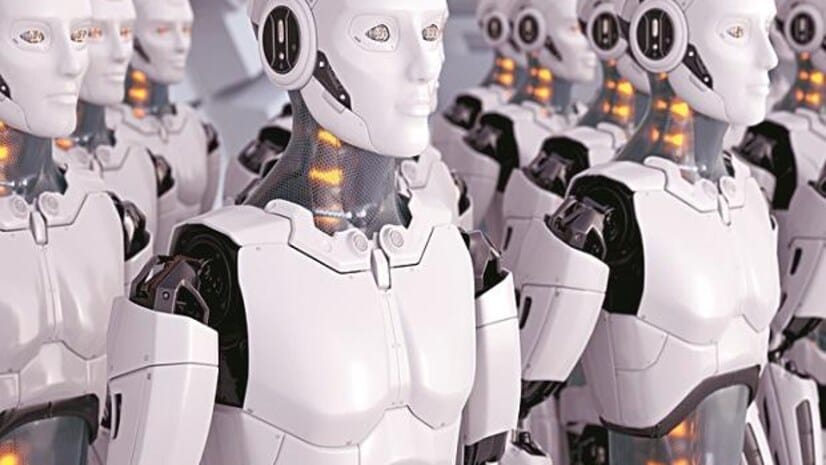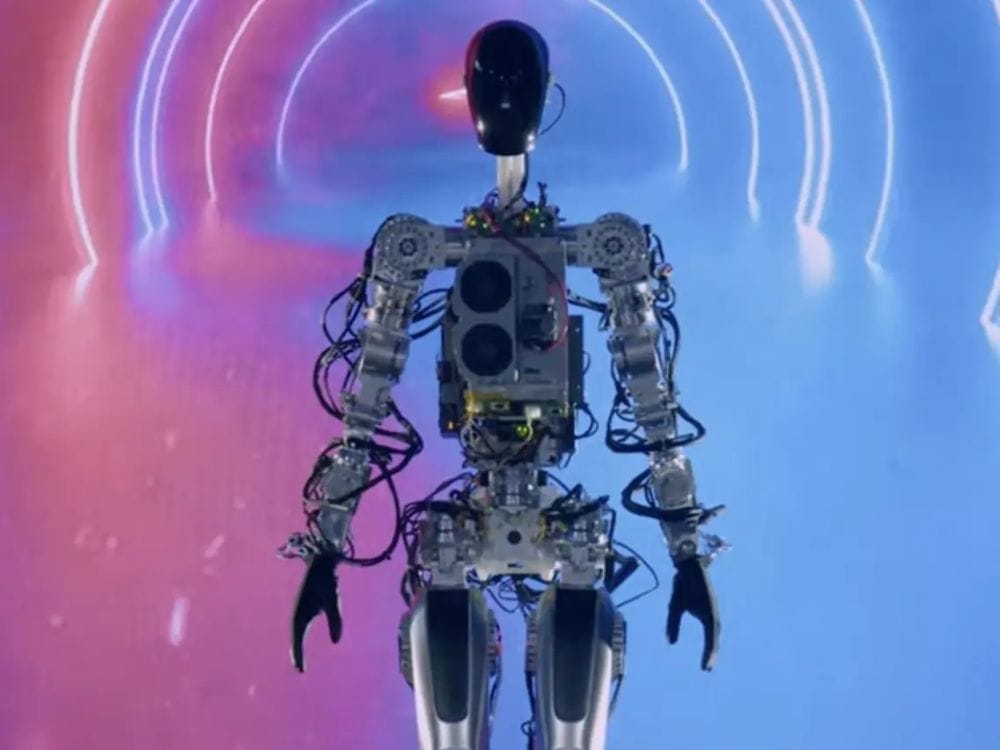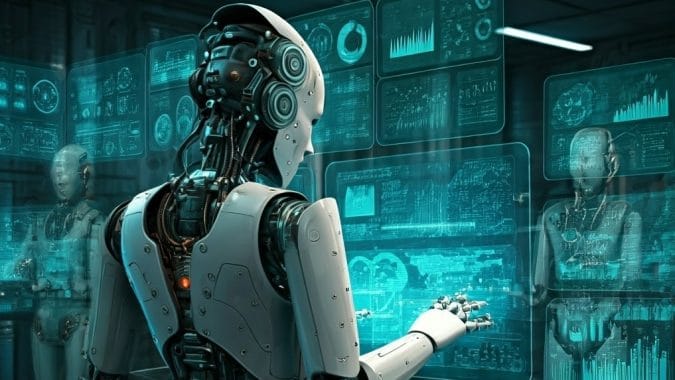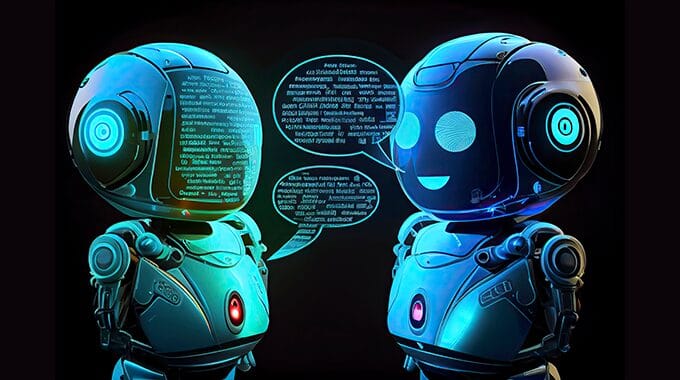Should Computerized reasoning Have the Decision to Abrogate Human Orders?
Man-made brainpower (man-made intelligence) has progressed quickly lately, developing from straightforward calculations into complex frameworks equipped for picking up, adjusting, and deciding. As simulated intelligence turns out to be all the more profoundly incorporated into basic frameworks — from medical care and transportation to military safeguard and monetary business sectors — a squeezing question emerges: Should simulated intelligence have the position to supersede human orders? This discussion addresses morals, wellbeing, control, and the likely dangers and advantages of enabling computer based intelligence with such independence.

Understanding man-made intelligence Navigation
Man-made intelligence frameworks are intended to handle tremendous measures of information, recognize examples, and pursue choices in view of pre-modified runs or learned conduct. Current man-made intelligence, especially AI and brain organizations, can adjust its reactions to evolving situations, frequently settling on choices quicker and more precisely than people.
Nonetheless, the subject of permitting computer based intelligence to abrogate human choices acquaints complex issues related with trust, responsibility, and control. While computer based intelligence can handle data without inclination, it misses the mark on capacity to appreciate individuals on a profound level, moral thinking, and moral system that people bring to independent direction.
Likely Advantages of computer based intelligence Abrogating Human Orders
- Wellbeing and Emergency The board
Artificial intelligence frameworks in independent vehicles, clinical gadgets, and modern settings might have to supersede human contributions to forestall mishaps. For example:
A simulated intelligence controlled independent vehicle could supersede a driver’s contribution to steer into approaching traffic, rather slowing down forcefully to stay away from a crash.
In clinics, man-made intelligence demonstrative frameworks could make specialists aware of mistakes in treatment plans or supersede choices that could hurt a patient.
- Dealing with Fast Choices
Simulated intelligence can process and follow up on information in milliseconds, far quicker than people. In circumstances like stock exchanging, rocket safeguard, or calamity reaction, artificial intelligence choices might be basic to turning away horrendous results. - Diminishing Human Mistake
People are inclined to exhaustion, stress, and profound inclinations, which can prompt unfortunate navigation. Artificial intelligence frameworks are resistant to such factors, empowering them to pursue judicious decisions in high-pressure conditions. - Forestalling Pernicious Goals
Computer based intelligence frameworks could supersede orders planned to inflict damage, for example, sending off an unapproved rocket strike or crippling basic foundation. This defend could forestall demonstrations of psychological oppression or harm.

Dangers and Worries About computer based intelligence Abrogating Human Orders
- Loss of Human Control
Perhaps of the biggest apprehension about artificial intelligence is the deficiency of human oversight. On the off chance that artificial intelligence frameworks can supersede orders, they could act unusually or settle on choices that people can’t switch. - Moral and Moral Restrictions
Simulated intelligence needs upright thinking, and that implies it can’t weigh close to home, social, or moral variables in direction. For instance, an artificial intelligence framework could focus on effectiveness over human prosperity, bringing about choices that ignore sympathy and compassion. - Responsibility and Obligation
Who is capable on the off chance that a man-made intelligence settles on a destructive choice? Should the fault fall on the engineers, administrators, or the simulated intelligence itself? Without clear responsibility, computer based intelligence independence could prompt legitimate and moral issues. - Programming Predisposition
Artificial intelligence frameworks are just basically as unprejudiced as the information and calculations used to make them. In the event that predispositions exist in the programming, man-made intelligence choices could reflect and enhance these inclinations, prompting unreasonable results. - Security Dangers
Independent artificial intelligence frameworks are defenseless against hacking and control. In the event that a man-made intelligence can supersede human orders, cyberattacks could take advantage of this ability, possibly causing horrendous disappointments.
Instances of simulated intelligence Independence Practically speaking
- Military Drones and Defense Systems
Simulated intelligence fueled robots can distinguish and dispose of focuses without human mediation. While this increments functional productivity, it additionally raises moral worries about responsibility and non military personnel setbacks. - Self-Driving Cars
Independent vehicles should settle on split-subsequent options in crucial circumstances, for example, picking whether to safeguard travelers or walkers. Permitting artificial intelligence to supersede drivers guarantees security however requires moral programming that lines up with cultural qualities. - Healthcare and Medical Diagnosis
Computer based intelligence frameworks can identify illnesses and suggest medicines with higher precision than specialists. In basic cases, computer based intelligence could have to challenge or supersede a specialist’s finding to save a patient’s life.

Ethical Frameworks for AI Decision-Making
To address the difficulties of computer based intelligence independence, specialists and policymakers are attempting to lay out moral systems that guide artificial intelligence conduct. These structures center around:
Straightforwardness – Guaranteeing computer based intelligence choices are reasonable and open to investigation.
Responsibility – Doling out liability regarding man-made intelligence activities to people or associations.
Wellbeing Conventions – Making safeguards to keep artificial intelligence from acting against human interests.
Esteem Arrangement – Programming man-made intelligence frameworks to focus on human qualities and moral standards.
Should AI Override Human Orders?
Arguments in Favor:
Simulated intelligence could go about as a defend against human mistake, predisposition, and malignant plan.
It could save lives in high-risk circumstances where fast choices are required.
Artificial intelligence might address botches that people neglect to perceive, further developing proficiency and security.
Arguments Against:
Giving computer based intelligence such independence could prompt a deficiency of human control, making dangers of abuse or glitch.
Computer based intelligence misses the mark on moral thinking important for complex moral choices.
Permitting computer based intelligence to abrogate orders could make it more straightforward for programmers to control frameworks.
Striking a Balance
Rather than giving computer based intelligence full independence, a crossover approach might be more viable. This approach includes:

- Human-in-the-Loop Systems
Computer based intelligence works under human watch, requiring endorsement prior to making basic moves. - Fail-Safe Mechanisms
Computer based intelligence frameworks are customized with crisis closure conventions to forestall atrocities. - Limited Overrides
Computer based intelligence can supersede human orders in predefined circumstances, like crises or mistakes, and should legitimize its activities a short time later. - Continuous Monitoring
Computer based intelligence choices ought to be continually checked to guarantee consistence with moral norms.
Conclusion
The possibility of computer based intelligence superseding human orders raises significant moral, mechanical, and philosophical inquiries. While man-made intelligence can upgrade wellbeing, proficiency, and independent direction, it additionally presents gambles with connected with responsibility, security, and moral thinking.
Giving man-made intelligence full independence without protections could prompt unseen side-effects, including loss of control and moral contentions. All things considered, we should zero in on making computer based intelligence frameworks that work close by people, giving direction and redresses while staying under human oversight.
The way to forming artificial intelligence’s future lies in offsetting advancement with alert — planning shrewd frameworks that enable mankind without compromising its position. Whether man-made intelligence ought to at any point cancel human orders stays an inquiry for people in the future to reply as innovation and morals keep on developing.